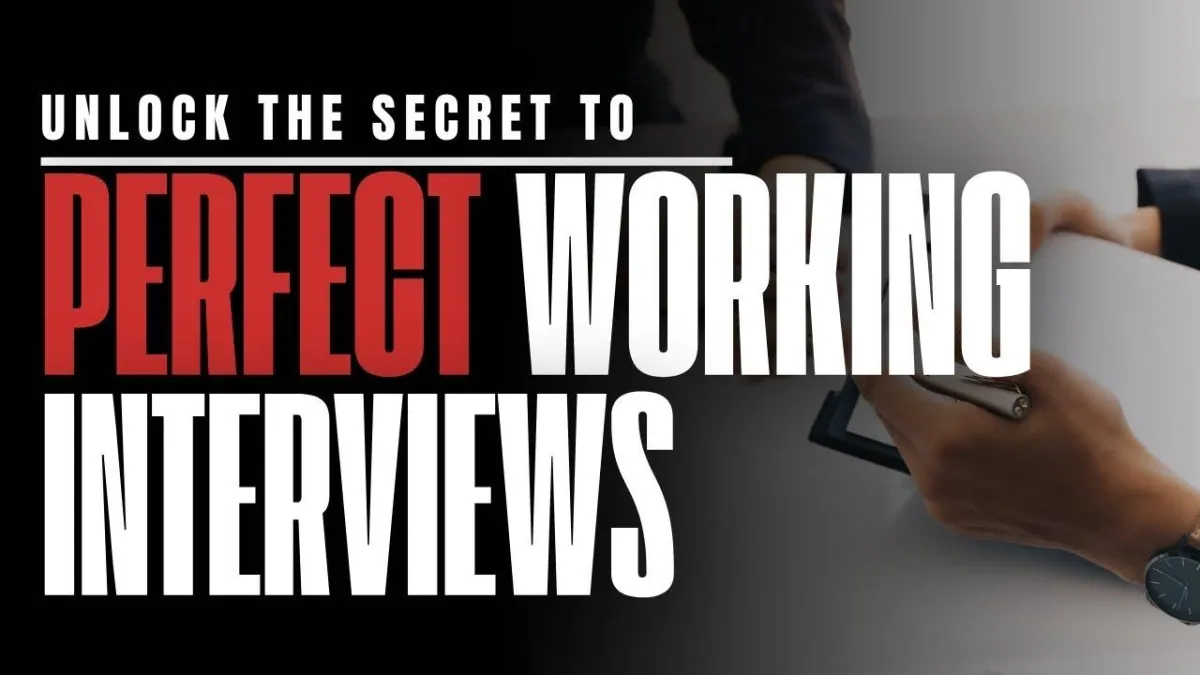
How to Make Your Working Interviews Stand Out—and Avoid the Common Pitfalls
Have you ever conducted a working interview that just didn’t seem to go right? Maybe the candidate struggled, the role-play felt awkward, or you realized they weren’t the right fit? If so, you may have overlooked some key elements that can make all the difference in evaluating a potential hire.
The reality is, working interviews can often become a game of surface-level impressions. The real challenge is creating an interview experience that reveals a candidate’s true skills, ability to handle pressure, and capacity to learn. So, what’s the secret to conducting a working interview that truly stands out?
Let’s break down some game-changing strategies for making your working interviews more effective.
🧠 Setting the Stage: Why Your Working Interviews Matter
Working interviews aren’t just about assessing how well someone can “talk the talk.” They’re about evaluating if a candidate can walk the walk. By pushing candidates out of their comfort zones, you can gain a clearer understanding of their ability to handle pressure, remember details, and execute tasks that reflect the true demands of the job. But to do that, you need a structured plan. Here’s how to set your working interview up for success:
💡 Tip 1: Test Their Ability to Memorize and Role-Play
A great way to gauge how well a candidate can adapt to your office environment is by giving them a script to memorize. Create a quiet space, free from distractions, and give the candidate 15 minutes to absorb the script. After that, role-play with them and assess how well they perform under pressure.
Watch for signs of confidence. Do they confidently deliver the script, even if they make a mistake? Or do they hesitate, become defensive, or show signs of discomfort? These behaviors are red flags that you should keep an eye on.
Remember: You’re looking for someone who can push through the challenge and perform the task with confidence.
💻 Tip 2: Have Them Perform a Task in Real-Time
Next, give the candidate a task that reflects the work they would actually be doing. For example, have them add a new patient appointment in your system, walk you through the process, and explain how they would handle the task.
By observing how they approach the task, you’ll get a real sense of their skills, technical ability, and attention to detail. Are they efficient and thorough? Or do they struggle to recall the steps?
📝 Tip 3: Simulate the Job Role with Multi-tasking
Here’s where things get interesting. After testing their task-based skills, introduce a scenario where they need to multi-task. Sit them down at the computer and role-play a phone call with them while they are entering patient data into the system.
This test will show you if they can balance multiple responsibilities at once while still being accurate and professional. Can they handle interruptions while maintaining focus? Or do they get overwhelmed?
🔑 Tip 4: Watch for Typing Skills and Attention to Detail
As you observe the candidate, pay attention to how they type. This may sound like a small detail, but it’s crucial. If the candidate struggles with typing or seems slow and unsure on the keyboard, this could indicate that they lack basic skills that are essential in today’s office environment.
Make sure they’re comfortable with the technology you’re using—this could save you time in the long run. If a candidate can’t type efficiently, it might be time to reconsider.
🎯 Tip 5: Shadowing for the Final Test
Finally, after going through these tests, it’s time to let the candidate shadow someone in the role. This final phase lets them see the day-to-day tasks they would need to manage, and allows you to gauge how well they integrate into the team and adapt to your practice’s culture.
Remember, this is just as much a time for the candidate to assess you as it is for you to assess them. Be sure that you’re transparent about the job expectations and what they’re committing to, so there are no surprises down the road.
🧩 Bringing It All Together
To wrap up the working interview, combine everything they’ve done—script role-playing, task performance, multi-tasking, and shadowing—and assess how well they perform under the combined pressure of all tasks.
If a candidate manages all of this with confidence and competence, they’re likely a great fit for your team. If not, don’t hesitate to move on and find someone who meets your standards.
💡 Final Thought: What Makes a Successful Working Interview?
The key to an effective working interview is preparation. By structuring the interview process to simulate real job demands, you’ll gain valuable insights into a candidate’s skills, demeanor, and ability to handle pressure.
Conducting a thorough, thoughtful working interview will help you avoid costly hiring mistakes and ensure you find the best fit for your practice or office.
🎥 Want to learn more about improving your hiring process?
Click here to watch Sensei Tosh’s full video on how to improve your working interview process.
WHO WE ARE
At MedPro Dojo, we help healthcare teams like yours build stronger communication, improve hiring practices, and achieve better results through active learning and tailored strategies. Whether you’re a case manager, healthcare provider, or leader in your clinic, we’re here to support you in creating better work environments and stronger teams.
📩 Email: [email protected]
📞 Call or Text: (833) 678-0800
📕 Book a Discovery Call Today